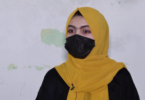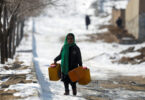Zahra Rashidi
More than two years have passed since the re-emergence of the Taliban in Afghanistan. During this relatively short period in terms of societal changes, women and girls have been deprived of their basic rights to move about, work, receive education, and pursue studies in Afghanistan.
This rapid regression, which is said to promote gender-based violence, also encompasses online violence, which has received less attention.
Simultaneously with the imposed restrictions and the enforcement of strict laws, the presence of women and girls in pursuing online education and other social-protest activities on social networks has become more vibrant than before. Women use social networks to follow their presence by performing various activities through social networks.
Women and girls who spend more than five hours online daily and use social networks such as Instagram, Facebook, and X, formerly known as Twitter told Khaama Press that their main goal of being online is to pursue education and skills obtained through this medium. However, according to one of these women, not only have the streets and alleys of Afghanistan become unsafe for women, but the online space has also turned into a place for violence against women.
According to Khaama Press findings, the most common types of harassment and intimidation that girls and women face on social networks and in virtual spaces include phone harassment (sending text messages), sharing and disseminating images, extracting personal information, threatening to publish this information, sending images and information containing unethical subjects, insult, humiliation, ID hacking, and various types of threats.
A girl residing in Jalalabad, who is 23 years old, shared her experience of encountering online violence with Khaama Press: “I created a Facebook account under my real name and then sent a friend request to my brother. After a while, I posted a picture of my half-face on the virtual page and encountered offensive comments from one of the male users.”
She says that alongside the insulting messages she received, fake accounts were created in her name using her picture, and when her brother found out, he deleted all social networks from his phone. Laila Basim, a women’s rights activist and senior member of the Women’s Protest Movement, believes that social networks “have become accessible to the public in Afghanistan before being culturally acclimated.”
With more than 30,000 followers on Facebook, she has faced various forms of online violence: “When I use virtual pages and use my photos, we encounter hundreds of ugly and offensive comments from people, and they come to our posts to insult and humiliate, which is not the case in other societies.”
According to her, users who target victims on social networks “try to express their complexes through the use of photos on virtual pages with pseudonyms.” Research by a non-profit organization based in London, known as the “Afghan Witness,” also indicates that after the re-establishment of the Taliban in Afghanistan, online violence against Afghan women activists, especially those who publish content on social networks such as X/Twitter, has increased. The findings of this research indicate that insulting content against women in the online space increased threefold (217%) from June to December 2021 compared to 2022.
In many cases, the harassment and intimidation of women activists in the virtual space have led them to withdraw from their activities under constant pressure. Researchers at Afghan Witness wrote that interviews revealed how women censor themselves or disengage from social networks to prevent online violence.
(Khaama Press)







